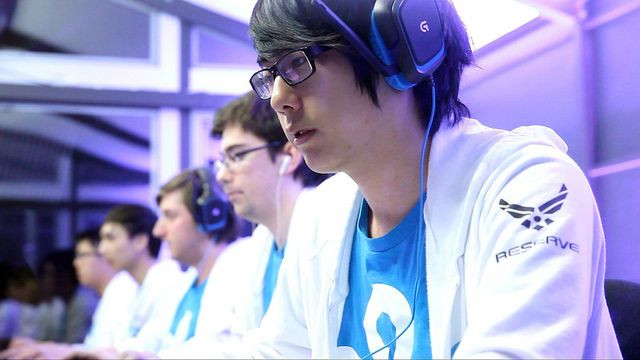E-Sports Competitors Will Undergo Olympics-Level Drug Testing; Wait, What Exactly Are E-Sports?

The world of competitive gaming has grown rapidly over the past few years. That’s right, video games have become a sport and everyone is starting to take notice. As with nearly every sport on the planet, cheaters show up and try to spoil all the fun with drugs and other ways of rigging the competition. E-Sports is no different.
The Electronic Sports League (ESL) said in July that it would launch an anti-doping program after one of its top gamers admitted to using Adderall during a tournament. Now, the ESL has backed up its word: It will have the same kind of anti-doping program that the Olympic committee uses.
The ESL’s list of banned substances is taken from the World Anti-Doping Agency and includes anabolic steroids, human growth hormones, cocaine, and, obviously, focus enhancers like Adderall. Marijuana, however, is only banned from the first day of a competition until the last day of a competition, so everyone who was lighting up and cranking out matches of Counter-Strike will be safe until game day. Exceptions will be made if a competitor has a valid prescription, which may lead to a lot of gamers who think weed helps them play better to get medical marijuana.
The league has stated that it will randomly test its competitors, while the punishment for breaking the rules ranges from fines to a two-year ban from the league itself. The first randomized tests will take place during the next ESL tournament.
I’m sure you’re reading this and thinking, “First of all, what are e-sports? Second of all, why is it a sport? Third of all, why’re people actually taking drugs to win at video games?” Let me explain.
E-Sports is defined as an organized multiplayer video game competition, mainly between professional gamers. Some games that would fall under the category of Esports would be Dota 2, League of Legends, Counter-Strike, Call of Duty, and Halo. Each of these games has had their own competitions, with millions of dollars on the line. In fact, just last week, an international tournament for Dota 2, titled The International, paid out the winners of the tournament a cool $6.3 million.
Asking why esports is a sport is like asking why golf or chess is a sport. It’s all subjective. Anything that takes a copious amount of practice, has governing bodies who hand out rules, fines, and handle competitions, and has professional players and millions of fans could be called a sport. If juggling had all these attributes that esports has and was on the same level, you’d be calling it a sport too. Heck, The International was seen on ESPN2 and mentioned on ESPN.com. No matter what you think of the Worldwide Leader in Sports, if they’re broadcasting a competition, it’s definitely a sport.
People take drugs to win at every level of competition. Whether it was baseball’s famed “Steroid Era,” Lance Armstrong’s furious denial and tearful admission to doping for the Tour De France, or the guy down at the Y who is taking steroids to win a bodybuilding competition, there are plenty of people out there who want to do whatever it takes to win. Why not esports?
Esports is hitting the map with ferocity and is only getting bigger. Before long, more competitions will pop up and with them, more cheaters. Hopefully, those competitions will have the same anti-doping standards as the ESL.
Published by Medicaldaily.com



























